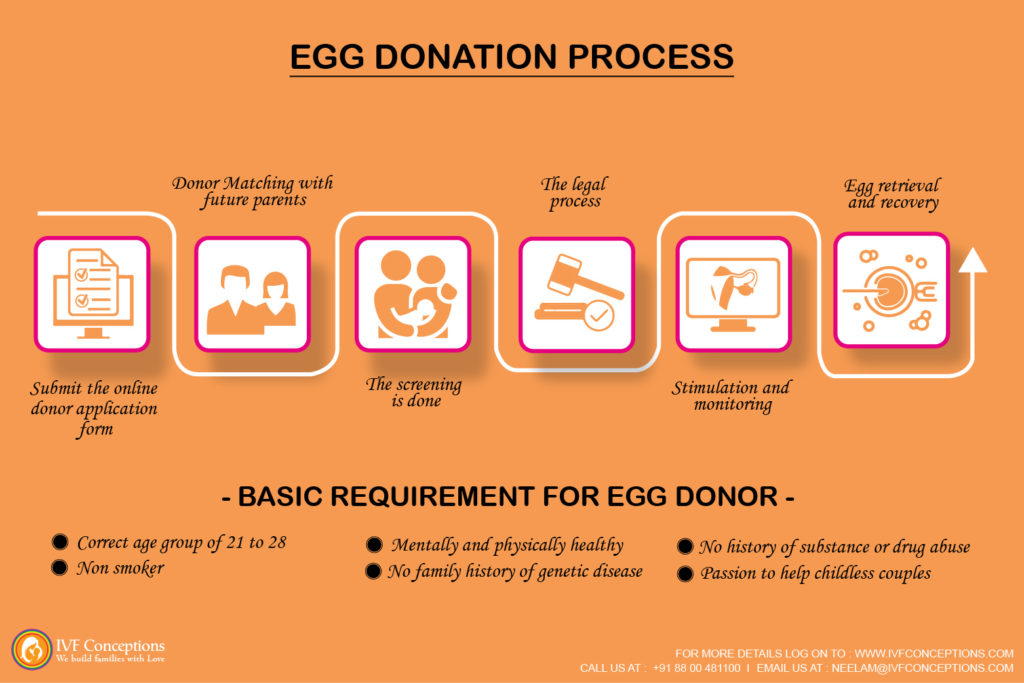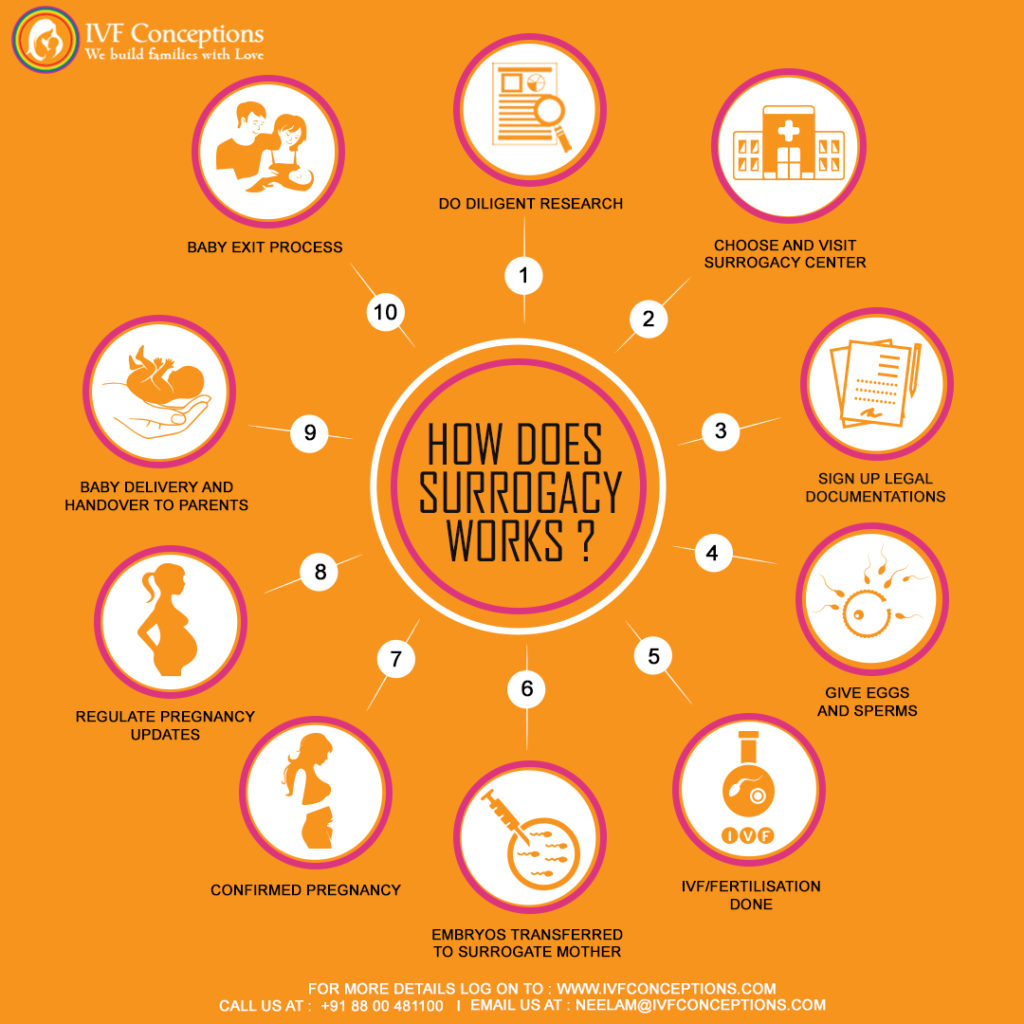Knowing surrogacy definitions and surrogacy meanings will help intended parents to be better prepared for their surrogacy process.

Gestational surrogacy is a demanding process with the legal, financial, medical, and logistic enterprises involved. When intended parents start their surrogacy journey at the very initial phase, the very first question that comes to their mind is “What is surrogacy definition” or “what is surrogacy meaning”? In this article, we will touch upon the definition and meaning of important terms used in surrogacy arrangements.
When intended parents or surrogate mothers wish to participate in the complex surrogacy process, they are intrigued by the extent of information they need to go through. But, they find it overwhelming with so many associated medical terms.
If you are not a surrogacy professional and have no expertise in this subject, it will be challenging to comprehend all the terms of Assisted Reproductive Technologies (ART).
Consequently, to be entirely ready for the gestational surrogacy process, it is essential that you understand the surrogacy definitions and also professionals’ specific terms used throughout the procedure.
Glossary of terms used to understand surrogacy definitions and surrogacy meaning.
Additionally, to know the surrogacy meaning, you will also have to comprehend the many different terms which are involved in the process. Below are a few surrogacy definitions that parents should know:
Prospective Intended Parent:
These are individuals or couples who are unable to have a baby due to any reason, and they need to hire a surrogate mother to carry the baby to term and delivery.
Their eggs or sperm are used to create embryos that are then transferred to the surrogate mother’s uterus. Most embryos are either biologically related to both parents ( both parents use their gametes). Sometimes, the intended parents choose an egg donor ( another lady) to create the embryos. In this case, the only intended father is genetically related to the baby.
Intended parents can be :
- The single male wishes to start without getting married.
- Married hetero couples, where the female partner is unable to carry due to a medical condition or due to professional reasons.
- Gay couples or single males who need the help of a gestational carrier to compete, family. They are also known as surrogacy fathers.
Surrogate Mother or gestational carrier:
The surrogate mother is defined as a woman who carries and delivers the baby for another couple. She is a woman between the ages of 21 and 38, had a successful pregnancy, and already has children. She can be a gestational carrier or a traditional carrier.
- Surrogates are sometimes also known as gestational carriers.
- She should have a good reproductive history with no issues in past pregnancies.
- She needs to be mentally, physically, and emotionally healthy as it is a long time commitment and can take more than a year to complete.
- Besides money, she should have the desire to help childless couples. Average surrogate compensation is in the range of $35,000 to $55,000.
Egg Donor or oocytes donor:
In some cases, the female partner is unable to use her own eggs or oocytes. This can be due to a high age factor, hormonal imbalance, or genetic issues related to the X chromosome. In such cases, they can use a young and fertile woman who already has proven fertility. The process is known as the egg donation process and the age of the egg donor should be in between 21 to 28 years.
Who needs an egg donor for IVF surrogacy:
- Gay couples need egg donors so that they can create embryos with their eggs and one of the partner’s sperm.
- The use of egg donors is more common than a sperm donor
- Parents can use their family members or friend as egg donors.
- An egg donor can be known or anonymous
- She should be mentally and physically healthy and committed to helping the parents.
Sperm donor:
In male-related infertility, the number of sperms or the quality of sperms is affected. If due for any reason, a couple is unable to use male partner sperm, they can opt for a sperm donor. A sperm donor is a male, between age of 21-40 years. He should be healthy with a good sperm count.
Read more about:
All about male-related infertility
In Vitro Fertilization (IVF):
This is a medical procedure – IVF process– use to fertilize eggs and sperm outside the body. Once fertilization has been done and embryos are created, these are transferred to a surrogate mother or intended mother.
In surrogacy, a fertility specialist will collect eggs and sperm from the intended parents, fertilize the egg in a test tube or culture dish, and that implant this embryo into the surrogate’s uterus.
Surrogacy Agency:
This is the organization that can help both intended parents and potential surrogates throughout the surrogacy process.
A typical function of a surrogacy agency is:
- Counseling and educating about the surrogacy process to both intended parents and surrogate mothers.
- Hiring egg donors and surrogate mothers.
- Screening and matching parents with surrogate mothers.
- Carry out a full medical process liaising with intended parents, IVF clinics, egg donors, and surrogate mothers.
- Provide support during surrogacy pregnancy and after that.
Fertility Clinic:
This is the medical organization that completes the IVF and embryo transport processes. Both intended parents and surrogates will need to work closely with their fertility clinic to finish their surrogacy.
What are surrogacy and the different types of surrogacy?
A complete process where a surrogate mother carries the baby for another couple is known as surrogacy. Gestational surrogacy is a long and complicated process, which includes many parties, with legal and financial agreements and involvement of medical procedures to achieve the desired result–that is to have a surrogate baby. This is also known as surrogate pregnancy.
There are far more terms connected with surrogacy, but these are a few surrogacy definitions you want to know if you are considering the surrogacy process.
Commercial Surrogacy :
This is also known as Paid Surrogacy. This is a surrogacy agreement in which surrogate mothers get financial benefits.
- Gestiona surrogate is paid good money in commercial surrogacy.
- A surrogacy agency can be involved to provide professional services to help the intended parents and surrogate mothers navigate through the full surrogacy process.
- Most countries prohibit commercial surrogacy on ethical grounds.
- Commercial surrogacy is legally allowed in a handful of countries like the United States, Ukraine, Georgia, and Russia. Ukraine and Georiga are top international surrogacy countries that are affordable yet legally secure.
Altruistic Surrogacy:
This is also known as unpaid surrogacy as this is done out of kindness or when a family member becomes a surrogate mother. In this kind of surrogacy agreement, no financial gain is involved for surrogate mothers.
- In an altruistic surrogacy, the surrogate is not compensated except for her actual expense like medical tests and consulting fees. Travel fees and her maternity cloth allowance and work loss allowance can be given.
- It is not much common and generally, it takes a long time to find a qualified surrogate mother.
- Few countries allow altruistic surrogacy arrangements in our United Kingdom, Canada, Belgium, the Netherlands, and parts of Australia.
Traditional Surrogacy:
It is a surrogacy arrangement where the surrogate mother is biologically related to the baby. She is half genetically linked with the baby she is carrying.
- The surrogate mother may be impregnated through sexual intercourse.
- By intrauterine insemination, by injections sperms directly in a woman’s uterus).
- This form of surrogacy is risky legally as the surrogate is genetically linked so she has the parental right to the baby.
- It is not a very common surrogacy arrangement.
Independent Surrogacy:
This is also known as Private Surrogacy or Independent surrogacy. In Independent Surrogacy, Intended Parents do not take the help of a surrogacy agency. They directly work with the surrogate mother, IVF Clinics, and legal attorneys.
- Independent Surrogacy is less expensive as no surrogacy agency fee is involved.
- But intended parents need to give more time and attention. Although indy surrogacy reduces surrogacy costs, it comes with its own share of issues like no emotional support or first-hand knowledge sharing as done by the surrogacy agency.
Gestational Surrogacy:
It is a surrogacy arrangement where the embryos are created with a medical process like in-vitro fertilization and then implanted into the surrogate uterus. She carries and delivers the baby to the intended parents.
- In most cases in gestational surrogacy, the intended parents are biological parents as they use their gametes to do IVF.
- Sometimes it is possible to use an egg donor.
- In some rare cases, a sperm donor can be used.
- The surrogate mother is never using her eggs or is not genetically related to the baby.
- Gestational surrogacy is a more secure form of surrogacy as the parents are the legal parents of the baby as they are biologically linked.
- It is a more costly form of surrogacy.
- This is the most common form of surrogacy practiced around the world.
Read more:
What is the process of surrogacy?
Will the baby look like the surrogate mother?
Conclusion
We hope by now you know a little more about ” What does surrogacy mean?”
Besides definitions of surrogacy, surrogacy signifies something different to each person. Besides a high financial stake, lots of emotional aspects are involved as creating a new life is not easy!
For intended parents, it is an opportunity to finally complete their family and realize their dreams of parenthood. For surrogates, it’s a lifetime chance where she selflessly can complete a family for a childless couple.
For both parties, surrogacy is a remarkable journey — a deeply rewarding yet scary enterprise to enter. Like in any other field, having knowledge gives power to parents so that they can make the right decision. Our aim is to educate the intended parents and surrogate mothers so that they can make informed decisions.
Are you interested in learning more about surrogacy definitions or meaning or starting the surrogacy process? Get in touch to get free surrogacy information.
If you’d like to learn more about IVF, Egg Donation, or international surrogacy globally, check out the rest of our website: IVF Conceptions. We offer legally secure and affordable surrogacy consulting services for FREE.





